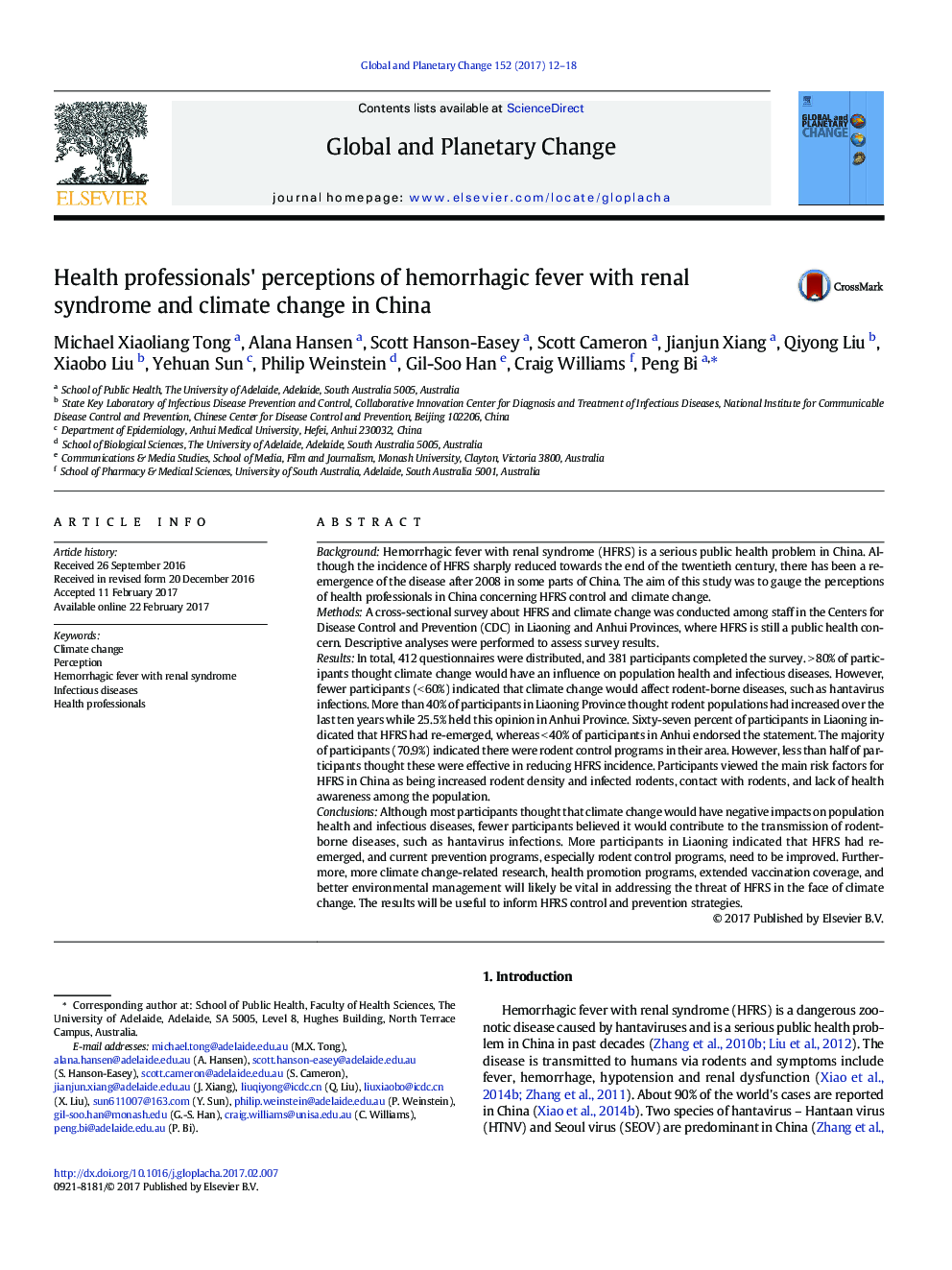| Article ID | Journal | Published Year | Pages | File Type |
|---|---|---|---|---|
| 5755329 | Global and Planetary Change | 2017 | 7 Pages |
Abstract
Although most participants thought that climate change would have negative impacts on population health and infectious diseases, fewer participants believed it would contribute to the transmission of rodent-borne diseases, such as hantavirus infections. More participants in Liaoning indicated that HFRS had re-emerged, and current prevention programs, especially rodent control programs, need to be improved. Furthermore, more climate change-related research, health promotion programs, extended vaccination coverage, and better environmental management will likely be vital in addressing the threat of HFRS in the face of climate change. The results will be useful to inform HFRS control and prevention strategies.
Keywords
Related Topics
Physical Sciences and Engineering
Earth and Planetary Sciences
Earth-Surface Processes
Authors
Michael Xiaoliang Tong, Alana Hansen, Scott Hanson-Easey, Scott Cameron, Jianjun Xiang, Qiyong Liu, Xiaobo Liu, Yehuan Sun, Philip Weinstein, Gil-Soo Han, Craig Williams, Peng Bi,
